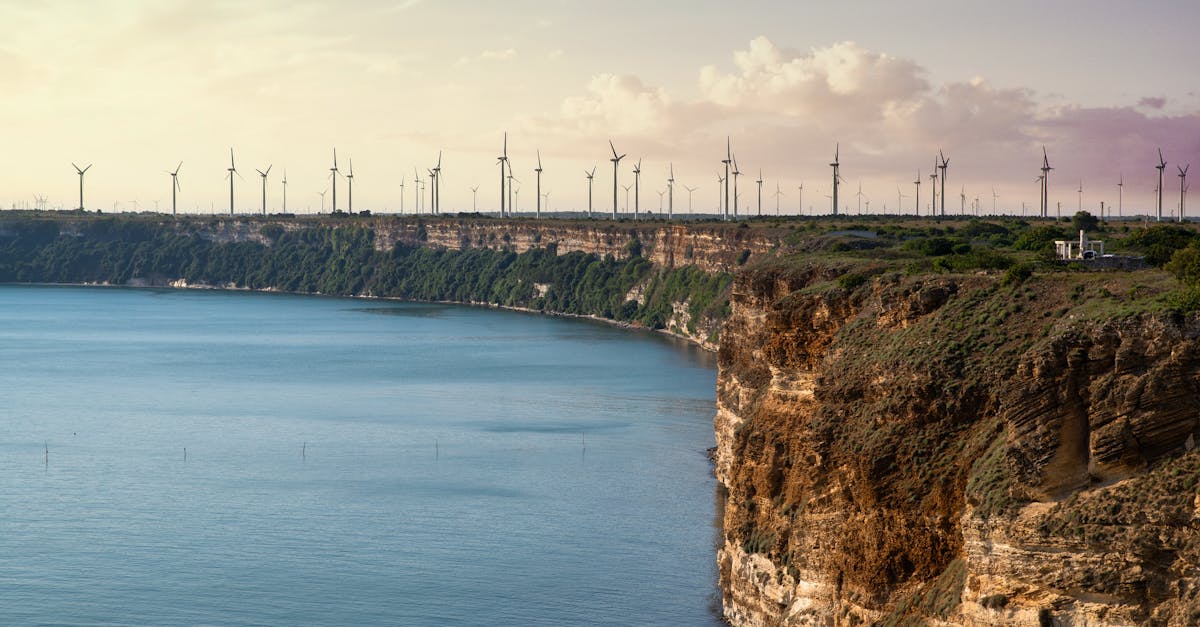Unlocking the Green Career Maze: Navigating Environmental Engineering Opportunities

Welcome to the fascinating world of environmental engineering careers! In this comprehensive guide, we will embark on a journey to uncover the diverse and enriching opportunities within the realm of environmental engineering. From contributing to sustainable energy systems to managing water resources and overseeing complex environmental projects, this article will provide insight into the dynamic roles that environmental engineers play. Whether you’re a seasoned professional seeking a career switch or a fresh graduate considering your options, this exploration will shed light on the exciting paths available in the field of environmental engineering. Join us as we delve into the world of environmental engineering jobs and unearth the possibilities that await those passionate about making a positive impact on our planet.
1. The World of Environmental Engineering
Thank you for reading this post, don't forget to subscribe!
The world of environmental engineering is a captivating blend of science, innovation, and real-world impact. Environmental engineers play a vital role in addressing global challenges by applying their expertise to create sustainable solutions. Whether it’s developing renewable energy systems, managing water resources, or enhancing air quality, these dedicated professionals contribute to a cleaner, healthier planet. With a focus on sustainability, environmental engineering encompasses a wide array of areas, including pollution control, waste management, and ecological restoration. This dynamic field not only addresses existing environmental issues but also aims to prevent future ecological harm, making it an ever-evolving and impactful career choice.
Environmental engineering doesn’t just involve problem-solving—it’s about envisioning a greener, more sustainable future for generations to come. From designing innovative technologies to collaborating on large-scale infrastructure projects, environmental engineers harness their expertise to protect ecosystems and support human well-being. By integrating scientific principles with practical applications, these professionals lead the charge in creating environmentally friendly solutions. As the world continues to prioritize environmental conservation and sustainability, the demand for skilled environmental engineers has never been greater, offering diverse and rewarding career paths that make a meaningful difference in the world.
2. Top Environmental Engineering Careers

Embarking on a career in environmental engineering opens the door to a world of impactful and rewarding job roles. As environmental concerns take center stage globally, the demand for skilled environmental engineers is soaring. Environmental Consultant: This role calls for expertise in assessing environmental impacts, providing tailored solutions, and guiding organizations toward sustainable practices. Environmental consultants work across diverse sectors, influencing positive change through their expert insights. Water Resource Engineer: Focused on preserving and managing water systems, water resource engineers play a crucial part in ensuring access to clean water and effective water conservation. Their work spans from designing water treatment facilities to spearheading watershed management initiatives.
Air Quality Engineer: With a keen eye on improving air quality, these professionals develop and implement innovative solutions to combat air pollution. Their work involves air quality monitoring, emissions control, and the design of air pollution abatement systems to create healthier environments for communities. Renewable Energy Engineer: As the world shifts toward sustainable energy sources, renewable energy engineers take the lead in designing and implementing clean energy systems. From solar and wind power to bioenergy solutions, these engineers drive the transition to eco-friendly energy alternatives, contributing to a greener future for all.
3. 1. Environmental Consultant
Environmental consultants play a pivotal role in shaping sustainable practices across industries. They utilize their expertise to evaluate environmental impacts, offering tailored strategies that mitigate adverse effects. The work of environmental consultants encompasses a broad spectrum, from assessing the environmental implications of specific projects to guiding organizations in adopting eco-friendly measures. In the field, these professionals collaborate with businesses, governmental bodies, and non-profit organizations, aiming to foster a harmonious relationship between human activities and the environment.
At the core of an environmental consultant’s role is the ability to provide expert guidance that aligns with environmental regulations and best practices. Whether it involves conducting environmental assessments, outlining remediation plans, or advising on sustainable resource management, these consultants act as catalysts for positive change. Their influence extends to diverse facets such as land development, energy projects, and industrial processes, ensuring that these activities harmonize with ecological well-being. By offering strategic insight and practical solutions, environmental consultants contribute significantly to the global effort of minimizing environmental impact while maximizing sustainable development.
4. 2. Water Resource Engineer

Water resource engineers are at the forefront of efforts to manage and preserve our vital water systems. With a blend of technical expertise and environmental stewardship, they oversee the infrastructure that provides communities with clean, accessible water. From designing and maintaining water treatment facilities to developing sustainable irrigation and drainage systems, these professionals play a pivotal role in safeguarding this precious resource for future generations.
The work of water resource engineers extends to addressing environmental challenges such as water scarcity and pollution. By implementing innovative conservation techniques and sustainable water management practices, they help ensure the long-term availability and quality of water resources. This includes promoting the efficient use of water in agriculture, industry, and urban areas, as well as devising strategies for stormwater management and flood prevention.
Water resource engineers collaborate with local governments, environmental agencies, and conservation organizations to develop comprehensive water management plans that prioritize ecological balance and community well-being. By integrating cutting-edge technology and a deep understanding of environmental dynamics, these engineers contribute to the sustainable development and responsible stewardship of our planet’s most essential resource—water.
5. 3. Air Quality Engineer
Air quality engineers are dedicated to ensuring that communities have access to clean and healthy air. Employing a combination of cutting-edge technology and environmental expertise, these professionals monitor air quality, identify sources of pollution, and implement innovative solutions to improve atmospheric conditions. Whether it involves reducing emissions from industrial facilities, designing air filtration systems, or implementing pollution control measures, air quality engineers play a critical role in safeguarding public health and environmental well-being.
Monitoring and assessing air quality is a fundamental aspect of an air quality engineer’s work. Using state-of-the-art monitoring equipment and modeling techniques, they track air pollutants and analyze their impact on human health and the environment. By collaborating with regulatory agencies, industries, and local communities, air quality engineers help develop and implement strategies to minimize air pollution and mitigate its effects, striving to create cleaner and safer environments for all.
Through their dedication to innovation and sustainability, air quality engineers contribute to the global effort to combat air pollution and its far-reaching consequences. From urban centers to industrial hubs, their work is instrumental in ensuring that the air we breathe is not only clean and safe but also conducive to a healthier and more sustainable world.
6. 4. Environmental Project Manager

The role of an environmental project manager is as diverse as it is impactful. These professionals oversee a wide range of environmental initiatives, ensuring that projects are executed efficiently while complying with regulations. Whether it’s managing renewable energy developments, wastewater treatment facilities, or ecological restoration projects, environmental project managers play a crucial role in steering initiatives toward successful and sustainable outcomes.
With a focus on regulatory compliance and environmental responsibility, environmental project managers navigate the complex intersection of business objectives and environmental conservation. They collaborate with multi-disciplinary teams, including engineers, scientists, and regulatory agencies, to ensure that projects meet the highest environmental standards while achieving their intended goals. Their expertise lies in coordinating project elements, managing resources, and communicating with stakeholders to drive environmental initiatives forward.
Environmental project managers are instrumental in utilizing resources effectively while maintaining environmental integrity. Their commitment to overseeing projects with meticulous attention to environmental impact and regulatory adherence contributes to the sustainable development and execution of initiatives that benefit both communities and ecosystems.
7. 5. Renewable Energy Engineer
Renewable energy engineers are at the forefront of the transition to sustainable and eco-friendly energy sources. Their work revolves around conceptualizing, designing, and implementing innovative energy systems that harness renewable resources such as solar, wind, and bioenergy. Through their expertise, these engineers drive the development of clean energy technologies, striving to reduce environmental impact and pave the way for a more sustainable future.
With a steadfast focus on sustainability, renewable energy engineers seek to optimize energy production while minimizing ecological harm. Their efforts involve evaluating site feasibility, conducting energy resource assessments, and integrating renewable energy solutions into existing infrastructure. By collaborating with communities, businesses, and governments, renewable energy engineers contribute to the widespread adoption of clean energy, leading the charge to reduce reliance on fossil fuels and combat climate change.
The work of renewable energy engineers extends beyond technical innovation—it is rooted in their dedication to environmental stewardship and long-term sustainability. By designing energy systems that prioritize environmental responsibility, these professionals play a pivotal role in shaping a world powered by clean, renewable energy, fostering a greener and more resilient planet for current and future generations.
8. 6. Waste Management Engineer
Waste management engineers are instrumental in revolutionizing the approach to waste disposal and resource utilization, aiming to minimize environmental impact and maximize sustainability. Their work encompasses the development and implementation of innovative strategies to handle, recycle, and repurpose waste, contributing to a circular economy and reducing the strain on natural resources. By collaborating with businesses, municipalities, and waste management facilities, these engineers drive the adoption of efficient waste disposal methods and resource recovery initiatives.
The focus of waste management engineers extends beyond simply managing waste. They are dedicated to optimizing waste treatment processes, implementing sustainable waste-to-energy solutions, and developing recycling programs that encourage a more responsible approach to resource utilization. Their efforts play a pivotal role in reducing the environmental footprint of waste, helping to create cleaner and more resource-efficient communities.
Waste management engineers are at the forefront of promoting a future where waste is seen not as a problem, but as a potential resource. Through their commitment to sustainable waste management practices, these professionals contribute to building a more resilient and environmentally conscious society, where waste is repurposed, recycled, and utilized to create a greener and more sustainable future for all.




